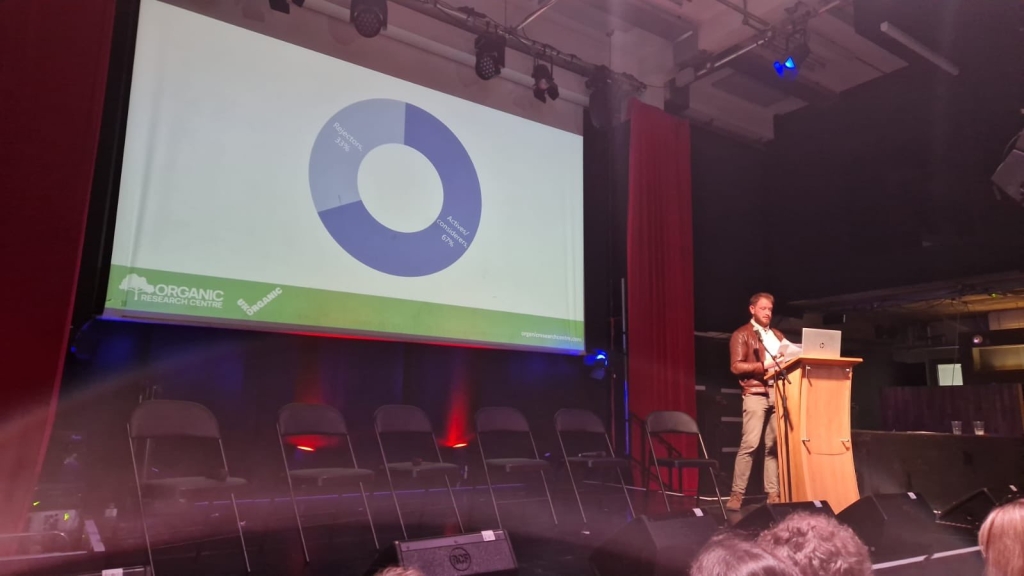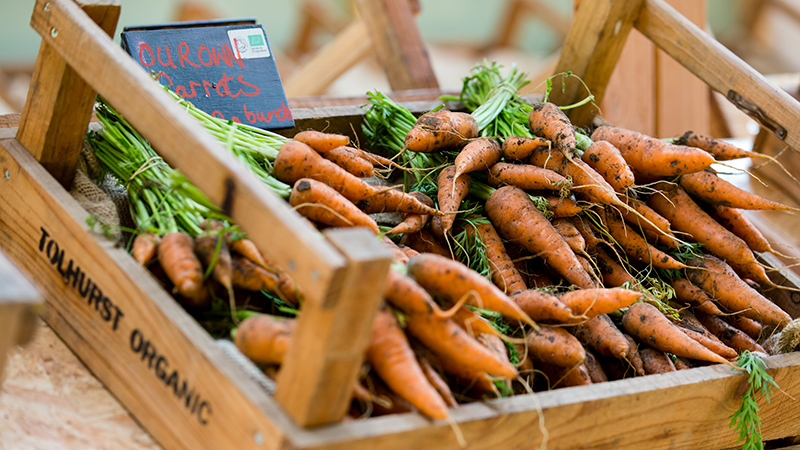Our Senior Organic Business and Markets Researcher Rowan Dumper-Pollard blogs on pleasing the crowd and life’s little surprises…
I often find what I now do quite surreal at times. When I was convinced that I wanted to be a DJ a few years ago, I never would have thought my largest crowd to date would be at an organic trade conference, and rather than playing songs, I would be providing statistics.

But life is always surprising, and this is exactly what we found in our latest consumer insights report with UK ORGANIC.
When we started the work as a collaboration at the beginning of the year, we were hoping to identify a few key groups who may, with the right messaging, be encouraged to shop for more organic products. We were pleased to find in our survey this spring that the majority of the population have knowingly bought organic goods. My preconception was that the less financial challenges people faced, the more they might buy organic goods and that we would be looking at higher income groups a lot in our analysis. I was surprised to find that household income did not necessarily determine organic shopping in the way we expected. As a percentage, richer households bought slightly more, but the most dedicated organic shoppers in our survey (always buying 4 or more product categories as organic – about 1 in 10 organic shoppers) were often from lower-income households.

The follow-up qualitative work I have been doing over the summer has shown that people of all backgrounds are highly conscious that they should be trying to be more environmentally friendly in their shopping, and buying organic is one way they can do that. But it goes beyond environmentalism for a lot of shoppers. Our results show that people are also thinking about their health, supporting the local economy, and pursuing their interests in cooking and exploring new products. This presents opportunities for the organic sector, as there are so many ways organic businesses in the UK provide healthy products, meaningful employment opportunities, and high quality, exciting products.
But at the same time the customer may be overwhelmed with decisions about what is best to do for them and their household. Shopping is a highly personal activity, and I find it fascinating because it is often the intersection of beliefs about what is right and what people are able to do in between numerous other responsibilities. The amount people think about what they buy can vary almost on a daily basis as schedules get busier, and budgets and responsibilities change. Overall, we found people are highly conscious about buying more healthily, and that no-one likes to be ripped off – rich or poor.
I think across the country as living costs rise, there is a growing sense that people want better value for their money than what they are currently getting. We hope this work offers valuable guidance to businesses and organizations in the sector on what consumers appreciate about various organic products and how to showcase the value organic products can provide. Some figures suggest that companies like Coca-Cola spend as much on advertising world-wide*, as the current total value of the whole UK organic sector – so we are very aware that changing narratives in the UK food and drink sector will be an uphill battle. But we are very pleased with what we’ve been able to achieve as a collaboration, and we hope to build on this work in the years to come.
